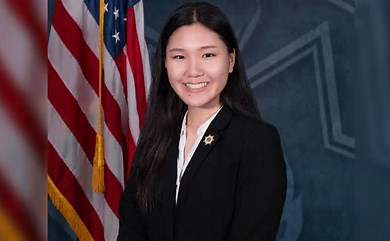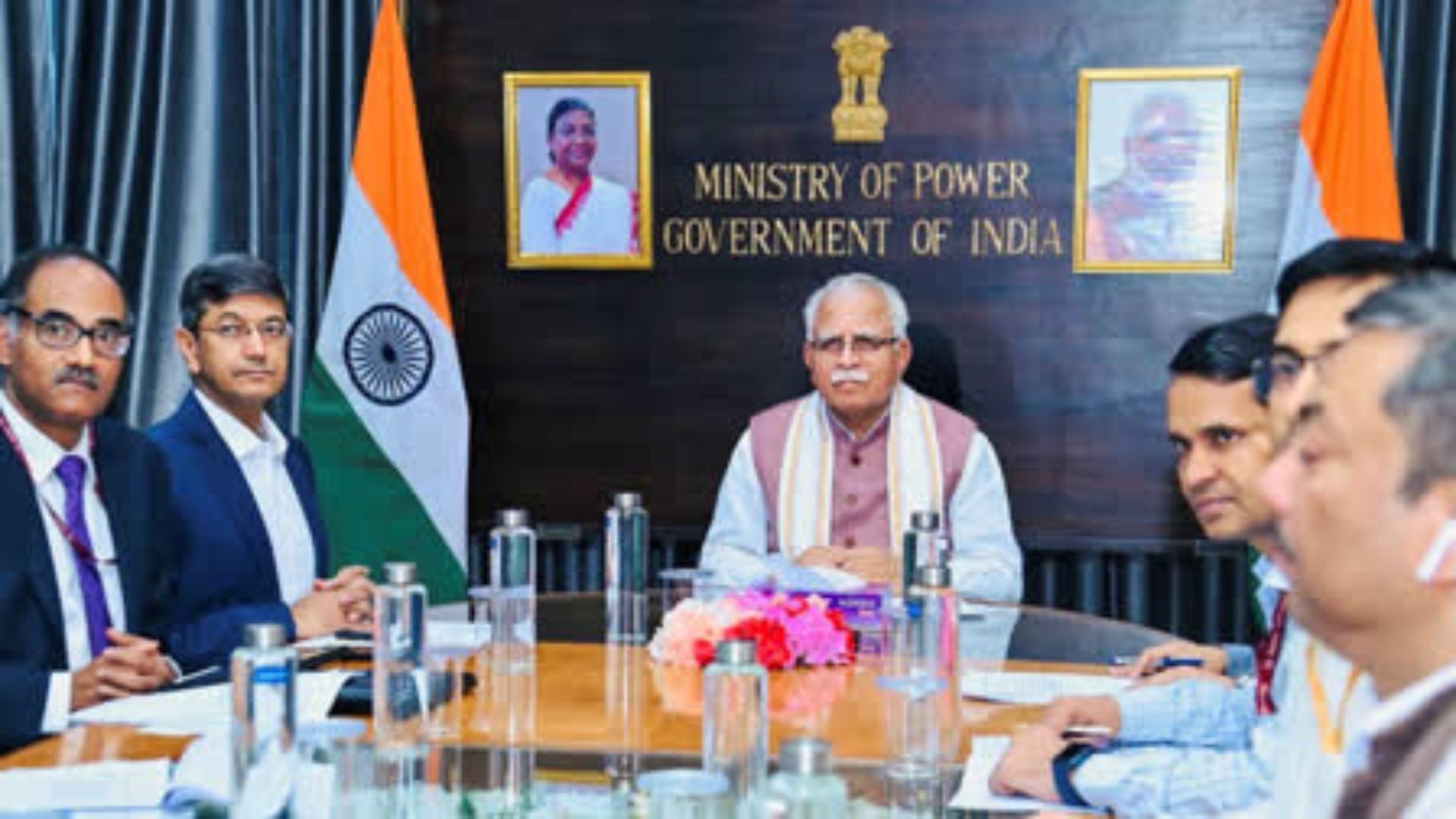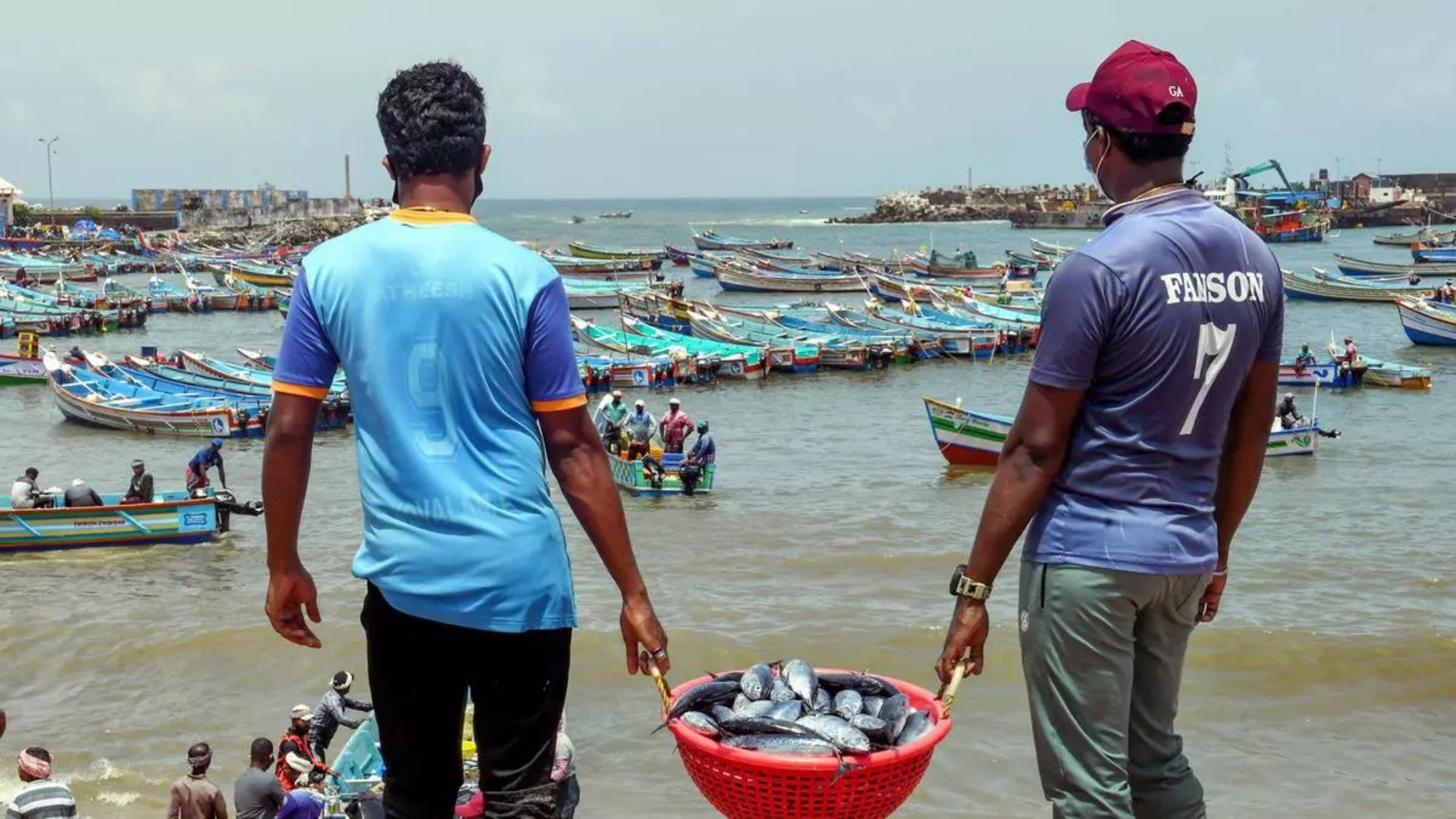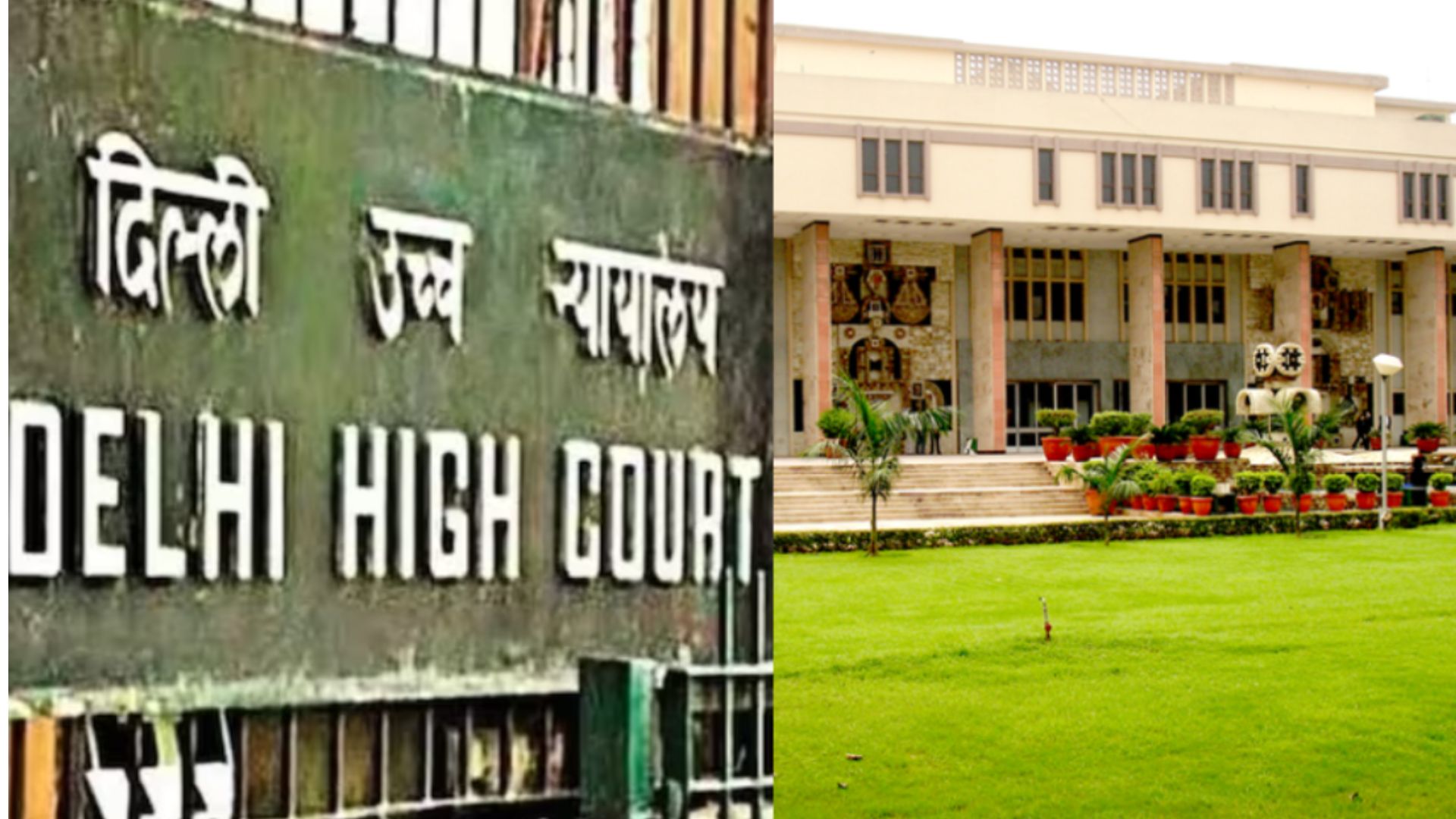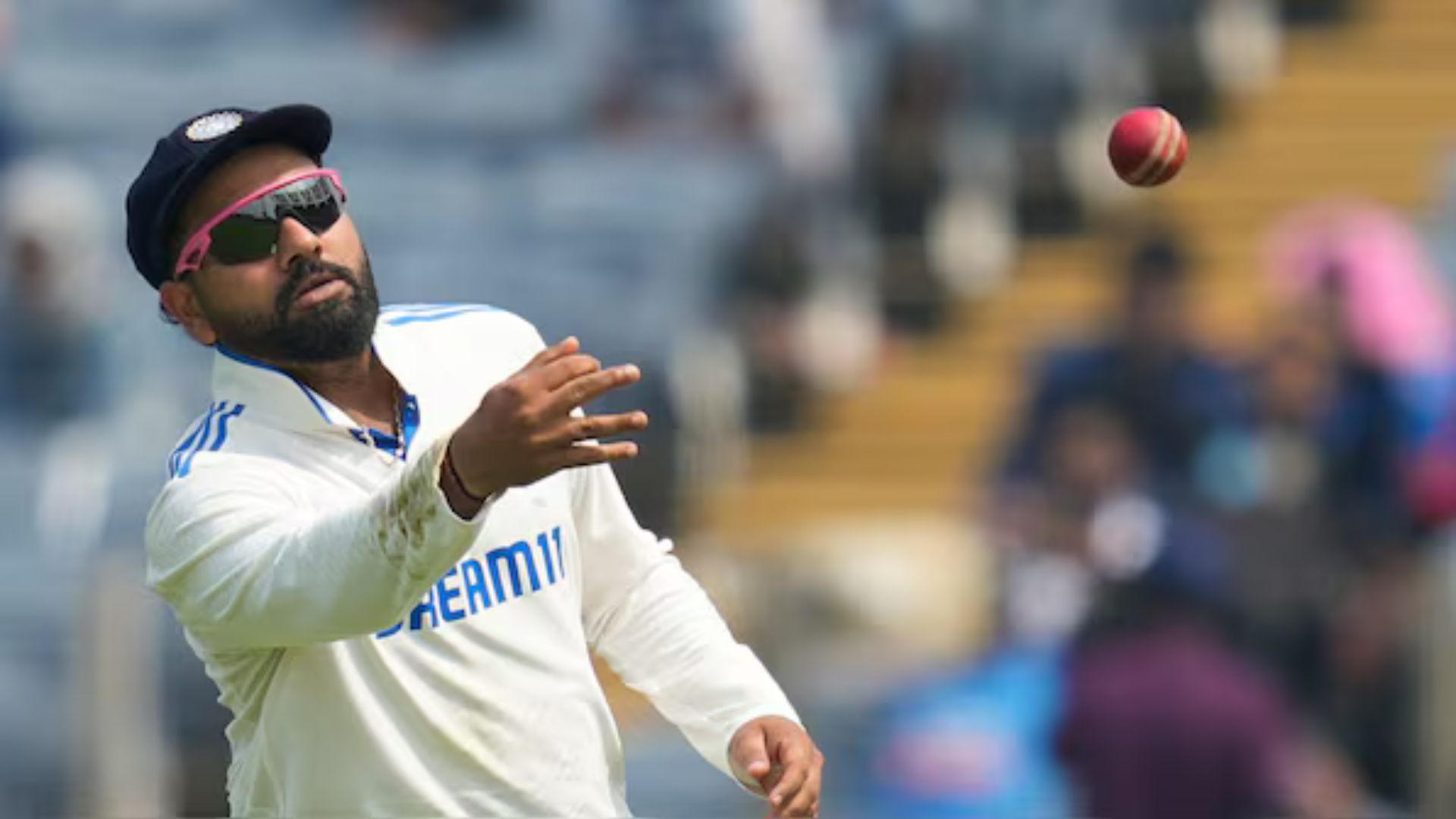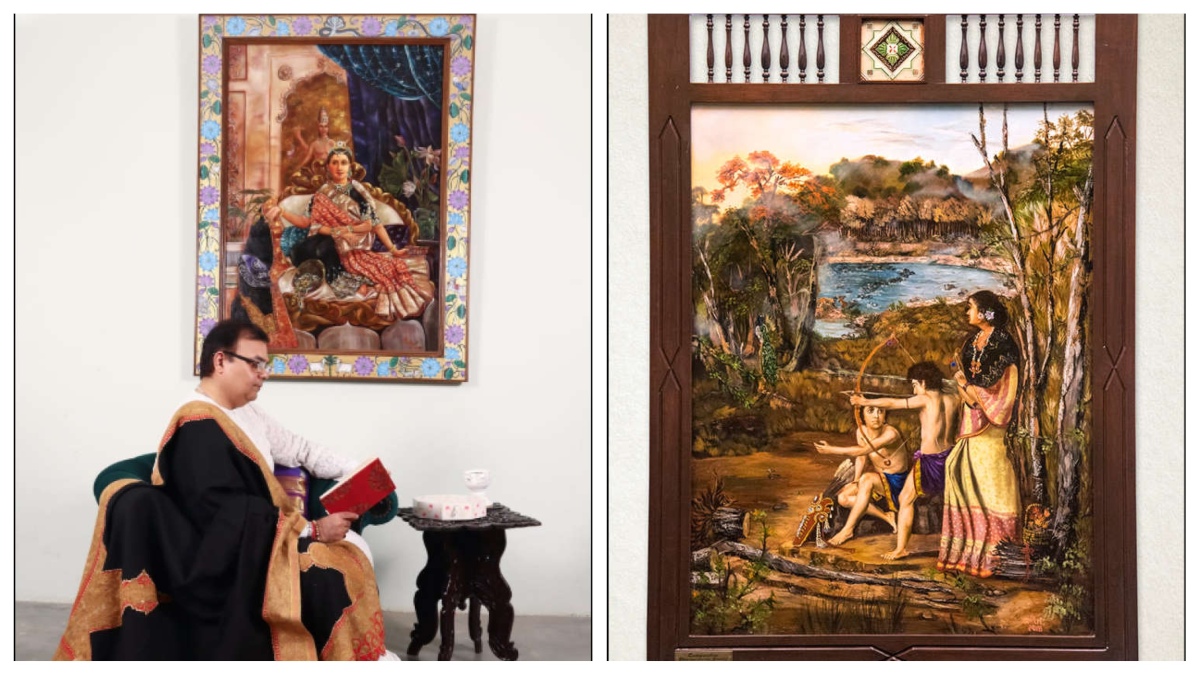
He creates art that is like a visual biography of his illustrious life, with imagery of the many bastions of creativity that have touched the core of his heart, a rustling up of regal iconography as witnessed by him and his family and a meeting of magical, mystical, spiritual realms with history and what is here and now.
Ravidarshan Vyas is the rajvaidya of Gondol, the gaddi pati of Bhuvaneshwari Shakti Peeth, a qualified homeopath, and a much-travelled global Gujarati. But in his heart’s heart he is an artist with unique expression, for he brings alive art that reflects the Ravi Varma school of neo-realism as captured through ethereal forms and godly characters.
While Ravi Varma turned to mythology, Ravidarshan’s body of work interprets the artist’s own life and its many inspirations. “My art is my biography. Others write books and I paint my story. I talk of movies that have moved me, palaces I grew up in, elements from old personal wardrobe, cultures and traditions, gods I love and people who are part of my extended family,” he shares.
The grandson of the much acclaimed vaidya His Holiness Acharya Shri Charan Tirtha Maharaja, he also steers a pharmacy founded in 1904. “My grandfather was the royal physician of the states of Gujarat and Rajasthan. Though based out of Gondol in Kathiawar, we were consulting many leading families from Jodhpur, Rajkot, Jasdan, etc.”
Heir to this legacy of science, Ravidarshan, a lover of art, is qualified in homeopathy and still consults. Besides being the gaddi pati of the Bhuvaneshwari Temple, a Shakti Peeth revered by the people of Gujarat and others living across the globe.
About his art, he says, “I am not really trained in an institution. I paint through the inner instinct of growing up amongst Ravi Varma’s art.” The Vyas family enjoys a deep closeness to the Jasdan royal family and Baroda and in his work you find many references to parts of their stunning palaces, like the Maand room in the Jasdan Palace, which is a reflection of the local craft of mirror work and has sparkling brass urns piled right up to its roof. Ravidarshan also paints an image of the siblings Krishna and Subhadra chatting in a room of this palace and the image of Mohini, the half male-half female seductress who could lure the most saintly of saints, in the Laxmi Vilas Palace, Baroda. “Raja Ravi Varma’s every brush stroke captures the depth of Indian mythology and history. In his work, I find a godlike innocence, and in my own way, I try to recreate that rare reverence.”
